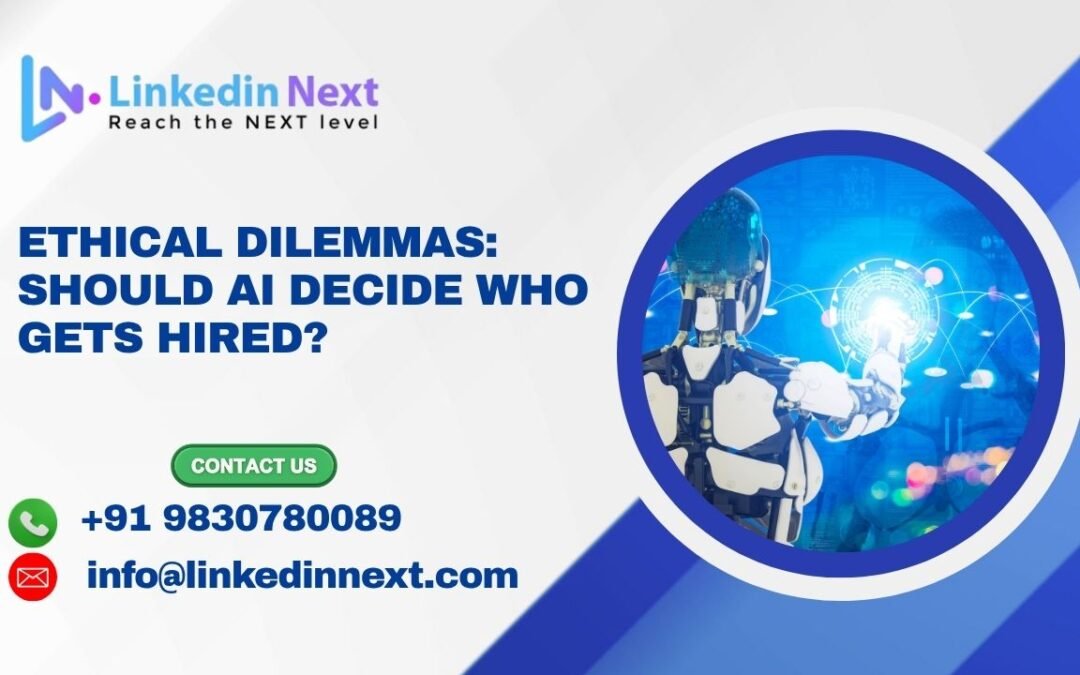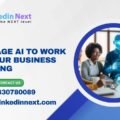Ethical Dilemmas: Should AI Decide Who Gets Hired?
Ethical Dilemmas: Should AI Decide Who Gets Hired?. In the rapidly advancing digital era, Artificial Intelligence (AI) is transforming every aspect of human life — and the hiring process is no exception. From scanning resumes to conducting preliminary interviews, AI-driven systems promise efficiency, objectivity, and speed. Yet, beneath this technological optimism lies a crucial question that challenges the moral fabric of the workplace: should AI decide who gets hired?
This debate isn’t merely technical; it’s deeply ethical, social, and philosophical. As organizations increasingly depend on algorithms to shape their workforce, society must confront the biases, fairness, and accountability embedded within these systems.
The Rise of AI in Recruitment
Modern recruitment has evolved from manual screening to AI-powered talent acquisition platforms that leverage data analytics, machine learning, and natural language processing. These systems analyze thousands of applications in seconds — something human recruiters could never achieve alone.
From giants like Amazon, IBM, and Google to smaller startups, companies are integrating AI tools for tasks such as:
-
Resume screening and candidate shortlisting
-
Predictive performance analysis
-
Video interview assessments based on tone, word choice, and facial expression
-
Chatbot-driven candidate engagement
AI in hiring offers undeniable benefits: it can reduce time-to-hire, standardize evaluation, and minimize human error. But can it replace human judgment in determining who deserves a job?
The Promise: Objectivity and Efficiency
The strongest argument in favor of AI-led hiring is its potential to eliminate human bias. Traditional recruitment is often influenced by unconscious preferences — such as gender, age, ethnicity, or educational background. AI systems, proponents argue, can focus solely on skills, experience, and performance data, ensuring a fairer process.
Moreover, AI provides scalability and precision. For large enterprises processing thousands of applications daily, algorithms can filter out unqualified candidates efficiently, saving HR departments both time and money.
AI can also analyze patterns of success within an organization, predicting which candidates are more likely to thrive based on historical data. This data-driven decision-making promises a level of consistency that human intuition cannot match.
However, this promise comes with a dark side — one rooted in the very data that powers AI.
The Problem: Algorithmic Bias and Ethical Blind Spots
While AI appears objective, it is only as unbiased as the data it learns from. If historical hiring data reflects discrimination — consciously or unconsciously — the AI system will replicate and reinforce those biases.
A well-known example occurred at Amazon, where an AI recruitment tool trained on past hiring data began penalizing resumes containing the word “women’s” (as in “women’s chess club captain”). This happened because the dataset reflected a male-dominated workforce. The tool was later scrapped, but the incident highlighted the inherent risk of algorithmic bias.
These biases raise profound ethical questions:
-
Should an AI system trained on imperfect human history decide the future of human opportunity?
-
Can we hold AI accountable for discriminatory decisions?
-
Who ensures transparency when algorithms operate as black boxes, making decisions that even their creators can’t fully explain?
Data Privacy and Surveillance Concerns
AI-driven hiring often involves analyzing personal data — from resumes and social profiles to video interviews and online behavior. This introduces serious privacy and consent issues.
Candidates may not be aware of how their data is being collected, analyzed, or stored. In some cases, AI systems evaluate facial expressions, voice tones, or micro-expressions to infer traits like confidence or honesty. But such assessments border on digital surveillance and raise questions about ethical boundaries and candidate autonomy.
Without strict data governance, organizations risk breaching privacy laws and eroding trust among applicants. Transparency must become a cornerstone of ethical AI hiring.
Accountability: Who Is Responsible When AI Gets It Wrong?
One of the biggest ethical challenges in AI hiring is accountability. When an algorithm unfairly rejects a qualified candidate or discriminates based on biased data, who is to blame?
-
The developers who designed the algorithm?
-
The HR professionals who deployed it?
-
Or the organization that approved its use?
Current legal frameworks are still evolving to address this grey area. While countries like the European Union are introducing AI regulations emphasizing transparency and fairness, most regions lack clear accountability guidelines.
Until such systems are in place, companies must adopt ethical AI governance models to ensure decisions remain explainable, auditable, and justifiable.
Human Judgment vs. Machine Logic
AI may excel at pattern recognition, but it lacks emotional intelligence, empathy, and contextual understanding — qualities vital in human resource management.
Hiring is not just about matching skills to job descriptions; it’s about assessing potential, adaptability, and cultural fit. Machines cannot fully comprehend human motivation or non-verbal nuances that often influence success in team environments.
A fully automated hiring process risks creating a dehumanized workforce, where individuals are reduced to data points and predictive scores. The human element in decision-making remains indispensable — not as a rejection of AI, but as a necessary balance.
Ethical Frameworks for Responsible AI Hiring
To navigate the ethical dilemmas of AI recruitment, organizations must build frameworks that prioritize fairness, transparency, and accountability.
1. Bias Auditing and Data Scrutiny
Before deploying AI tools, companies should conduct regular bias audits to identify and eliminate discriminatory patterns. Training data should be diverse, representative, and inclusive.
2. Explainable AI (XAI)
AI systems should provide clear explanations for their decisions. Candidates should know why they were shortlisted or rejected. This transparency promotes trust and accountability.
3. Human-in-the-Loop (HITL) Approach
AI should assist, not replace, human recruiters. A collaborative model ensures that ethical judgment, empathy, and context remain central to hiring decisions.
4. Compliance with Ethical Standards and Laws
Organizations must align with ethical AI principles such as those outlined by OECD, UNESCO, and EU AI Act, ensuring that technology serves humanity — not the other way around.
5. Candidate Consent and Data Protection
Respecting candidate rights means providing clear consent mechanisms, protecting sensitive data, and limiting how long it’s stored or used.
The Future of Ethical Hiring
The future of recruitment lies in AI-human synergy, not competition. When designed and managed ethically, AI can become a powerful ally — removing inefficiencies, democratizing opportunity, and enabling data-backed insights.
However, organizations must remember: technology should augment fairness, not replace morality. The ultimate hiring decision should be guided by human values — empathy, equality, and justice — with AI serving as a tool, not a judge.
The question “Should AI decide who gets hired?” ultimately leads us to a broader truth: technology must serve humanity, not define it.
In conclusion, while AI can revolutionize the hiring landscape, it must be governed by strong ethical principles. Balancing efficiency with fairness, automation with empathy, and data with dignity is the only way forward. The goal should not be to let AI decide who gets hired — but to let it help humans decide better.
Thank you for read our blog “Ethical Dilemmas: Should AI Decide Who Gets Hired?”.
Also read our more BLOG here.
I hope this blog is helpful to you, if you have any question feel free contact us at
Call/WhatsApp: +91.9830780089 || Email: info@linkedinnext.com







Recent Comments